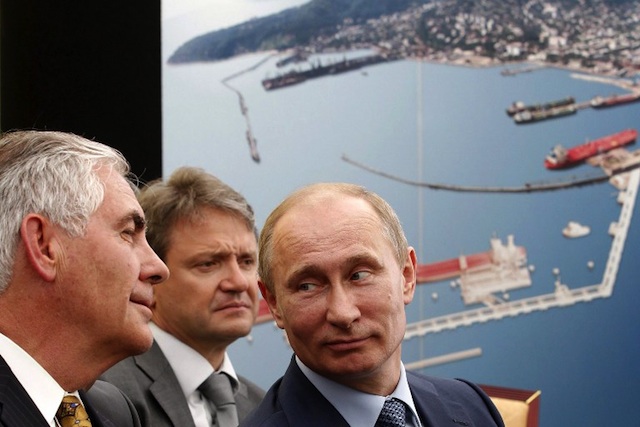SUMMARY
This is AI generated summarization, which may have errors. For context, always refer to the full article.

MOSCOW, Russia – World energy power Russia said on Wednesday that its 2012 oil output hit a post-Soviet record high level while natural gas production declined amid stalling European sales.
The mixed figures — highlighted by a dip in oil exports outside ex-Soviet territories — point to lingering problems in a sector that accounted for 49% of all budget revenues in 2011.
It also remains instrumental to President Vladimir Putin as he assumes a third term in power having made social promises aimed at calming the first wave of dissatisfaction with the Kremlin since Soviet times.
The Russian energy ministry’s reporting unit said oil and gas condensate production grew by a healthy 1.3% last year to reach a new record of 518.0 million tonnes (10.40 million barrels per day).
Russia had established its previous post-Soviet high in 2011 when output stood at 10.28 million barrels per day.
Its post-Soviet low came in 1994 when daily output slumped to 6.0 million barrels — less than half of the 12.4 million barrels Russia and 14 other republics produced as part of the Soviet Union in 1988.
Investment helped production in the late 1990s. The government focused on a still-evasive strategy to diversify the economy and shed Russia’s dependence on the global price of oil.
The current output rate outpaces that of Saudi Arabia and clinches for Russia the title of the world’s biggest oil producer.
But Russia lacks the quick ability of Saudi Arabia to boost output in case of a global economic rebound or more serious turmoil in the Middle East.
It also appears to be unable to break through any further on large foreign markets to which it has no direct pipeline and that in some cases are starting to depend on US shale oil.
Wednesday’s figures showed exports outside the former Soviet nations declining by 0.3%.
The state-owned oil firm Rosneft still dominated with 22.8% of Russia’s oil market — its share this year expected to reach more than 40 percent following its October acquisition of the Anglo-Russian venture TNK-BP.
Russia’s natural gas production meanwhile shrank by 2.3% to 655.0 billion cubic metres (23.1 trillion cubic feet) as its European sales shrivelled up.
Production of the state natural gas giant Gazprom was reported at 478.8 billion cubic metres — well off its 2011 figure of 513.1 billion cubic metres cited by the company itself.
The drop reflects the reality that almost all of Gazprom’s foreign sales are focused on European and post-Soviet countries now experiencing some of the slowest growth rates in the world.
Gazprom has also been slow to shift its focus to liquefied natural gas (LNG) production that could help it reach the growing markets of Asia and Latin America.
The European Union — importing about 30% of its gas from Russia — has made a priority of diversifying suppliers in a bid to ease its political dependence on Moscow.
It last year ordered raids on Gazprom’s European affiliates as part of a price-fixing probe that has already forced the Russian monopoly to renegotiate some of its long-term contracts.
Gazprom is particularly upset about new EU rules barring it from both shipping gas and owning the pipelines along which it is distributed and transmitted.
The new legislation is particularly painful because Gazprom has made two massive pipelines — the new Nord and planned South Steam — the linchpin of its multi-billion-dollar European strategy.
The trouble in Europe has already forced some serious revisions in the company’s strategy.
Last year, Gazprom abandoned immediate plans to develop a massive Barents Sea field called Shtokman because of questionable future European demand.
The project is now being turned around to produce liquefied natural gas for broader sale. – Rappler.com
Add a comment
How does this make you feel?


![[In This Economy] Can the PH become an upper-middle income country within this lifetime?](https://www.rappler.com/tachyon/2024/04/tl-ph-upper-income-country-04052024.jpg?resize=257%2C257&crop=295px%2C0px%2C720px%2C720px)


There are no comments yet. Add your comment to start the conversation.